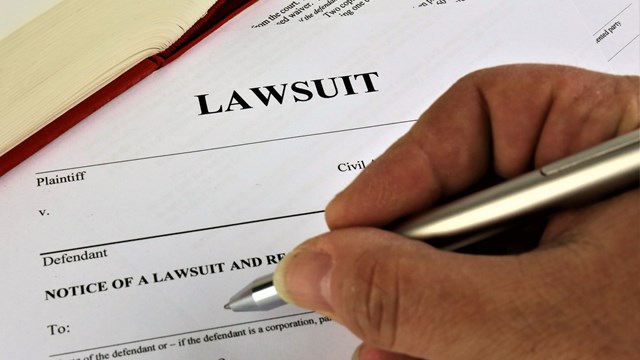Unit owners, board members, and even property managers are often confused about their responsibilities regarding damage inside and outside individual units. This confusion arises for several reasons, primarily because a building’s bylaws usually have two sections that dictate responsibility within the unit: one for maintenance, and the other for damage or destruction.
Owners are typically responsible for maintaining certain areas within their units that no one else has access to, such as plumbing fixtures. However, this responsibility for maintenance does not necessarily mean they are responsible for replacing these fixtures if they are damaged. For example, a plumbing fixture may need to be repaired by the association if it is damaged by a covered peril like a fire. Additionally, just because an owner is responsible for maintaining a pipe does not mean they are responsible for damage caused by that pipe. In most cases, the key factor is not what caused the damage, but what was damaged.
For example, if a pipe in unit 3B bursts and causes damage to units 2B and 1B, the owners of 2B and 1B would be responsible for repairing their personal property, as well as any improvements or betterments they make. (‘Improvements and betterments’ refer to any upgrades or changes made to the unit, such as wall-to-wall carpeting, wallpaper, varnish on the floors, and paint on the walls.) On the other hand, the association would likely be responsible for repairing the walls, floors, and ceilings, rather than the owner of unit 3B, whose pipe burst.
Insurance benefits the insured party, their neighbors, the board of directors, and the property management firm. Everyone having insurance coverage helps maintain peace within the community. When damage occurs, owners are already distressed, but the situation worsens if they or the negligent party lacks insurance. In cases where an uninsured owner is sued for damages by another owner or their insurance company, the board and management firm often get entangled in the lawsuit. Boards frequently face difficult decisions regarding inadequate coverage, and management firms endure increased workloads when lawsuits arise.
Private homeowners are usually required to have homeowners' insurance as part of their mortgage agreement. The same requirement applies to condominium owners, but co-op shareholders typically only need to show proof of insurance coverage for the co-op at closing. This leads to a common misconception: some shareholders believe they do not need homeowners' insurance because banks and mortgage companies do not require it as a prerequisite for a mortgage. Consequently, some shareholders arrive at closing without their own insurance.
Some co-op owners mistakenly think that since they do not own the actual unit in which they reside, they should only maintain renter’s insurance. This is incorrect, however; a renter's policy will not cover their responsibilities within the unit. Co-op and condominium owners often do not realize that they are generally responsible for damage to all improvements and betterments made by them or a previous owner.
Some governing documents require owners to have insurance, but many don’t - and those that do often only require proof of coverage generally - they don’t require specific coverages or minimum limits. However, more and more associations are amending their bylaws to include such a requirement, and are being more detailed, requiring some or all the following coverages, often with minimum required limits:
• Improvements & Betterments - Coverage is provided for what an owner is responsible for within their apartment, which generally includes improvements and betterments made to the unit by that owner, as well as any prior owner.
• Personal Property & Contents - Coverage is provided for the owner’s personal property, including furniture, rugs, TVs, stereos, clothes, etc.
• Loss of Use & Additional Living Expenses - Coverage is provided for the additional costs of living away from home if the owner can’t live in the unit due to damage from a fire, storm or other insured peril. It covers hotel bills, restaurant meals, and other living expenses incurred while the unit is being rebuilt.
• Personal & Family Liability - Coverage is provided for claims by others for bodily injury or property damage caused by the negligence of the owner or their family members. This could include injuries to others, or damage to the property of others in the building (i.e., water overflow).
• Loss Assessment - Coverage is provided if the owner is assessed in the event the co-op/condo association did not maintain adequate coverage for either a covered property (the building) or liability loss. Each owner can be assessed a proportionate share to make up for the deficiency. In some cases, coverage will apply if the assessment is a result of the association having a high deductible for a covered claim.
Challenges in Implementing Coverage Requirements
Requiring coverage can be challenging, as doing so often demands a majority vote from the owners, typically needing a two-thirds majority. Once coverage is mandated, it must then be monitored to ensure that everyone maintains their insurance. Here are some Do’s and Don’ts for effective monitoring:
Don’t:
• Try to have the board handle it by requiring each owner to email them proof of coverage. Not only does this open residents up to potential loss and/or identity theft in the event of a hack or data breach, but monitoring coverage is very time consuming.
• Assign this task to management and expect them to handle it. This responsibility involves a significant amount of work, and could detract from their contractual duties. Eventually, they may need to increase the management fee to compensate for the additional workload. Additionally, they are likely to require proof of coverage only once a year. (See the following item)
• Require owners to submit proof of coverage once a year on the same effective date. Not all owners will have the same expiration date. If there are 60 units in a building, that means an average of five owners’ coverage will expire in a given month. If everyone were to supply proof on the same date every year, someone's policy that expires two weeks later could lapse, and the board wouldn’t know until almost a year later.
Do:
• Find a company to manage the process.
Require proof to be supplied initially - so the board knows everyone has coverage - and then before each owner’s renewal.
• Make sure that owners not only have coverage, but meet the building or association’s insurance requirements.
• Ensure that owners list the association as an Additional Interest on their insurance policies. While homeowners' insurance companies typically won't add the co-op or condominium as an Additional Insured, they may add it as an Additional Interest. This designation will notify you if a policy is being canceled.
Monitoring insurance coverage offers several key benefits to the association and its residents:
An uninsured resident who causes damage because of their negligence will result in your insurance paying a claim, rather than the resident's insurance company. Claims are the biggest reason for increased premiums and canceled policies. Transferring the risk to the negligent party will keep the claim off your loss history.
In addition, having proof of insurance for each resident may allow your insurance company to subrogate for a loss, thus removing it—which would also benefit your loss history.
Everyone having insurance reduces the likelihood of a General Liability Property Damage claim against you. Uninsured residents who experience damage are more apt to sue the association for what they are responsible for, such as any improvements, their contents, or their expenses if they cannot live in the unit due to a covered peril.
Due to repeated losses throughout the industry (especially water damage losses), more and more insurance carriers are providing quotes with higher deductibles and/or separate water damage deductibles. Having this option allows an insurance company to provide a new or renewal quote when they normally wouldn’t.
One of the coverages in an owner’s policy is Loss Assessment, which provides coverage for an assessment related to a covered peril. Knowing that all owners’ policies include Loss Assessment coverage, the association can assess owners for their deductible in the event of a covered loss, instead of having to draw from the community’s reserves.
Having a higher deductible not only reduces the amount and/or frequency of claims, but translates into a lower premium. This helps prevent maintenance increases or assessments to pay for increased insurance premiums—and lower maintenance increases property values.
Ensuring that all unit owners have adequate insurance protects not only the individual owners, but also the entire association. Effective monitoring of insurance policies helps prevent financial losses, reduces the likelihood of disputes, and maintains the association's financial health. By implementing robust insurance requirements and monitoring practices, associations can foster a secure and stable living environment, safeguarding the property’s value and enhancing the overall quality of life for all residents.







Leave a Comment